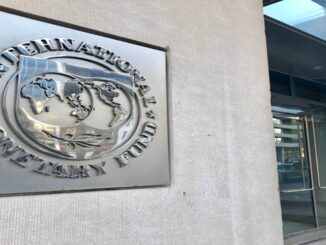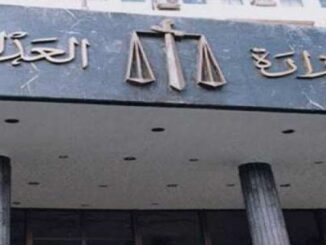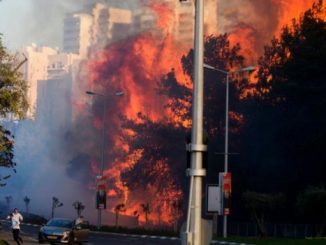
How can COP27 take place in a country where independent civic activism, peaceful protests, free speech are all effectively banned?, wondered Amy W. Hawthorne, human rights expert and research director at the Project on Middle East Democracy.
“And next year, Conference of the Parties of the UNFCCC (COP) will be hosted by even more repressive UAE, underscoring this UN travesty,” she added.
This is the government, Egypt, that’s hosting COP27 next month,” where staff of critical Egyptian human rights and environmental groups said they are wary of publicly engaging at COP27 because of fears of reprisals.

“The security apparatus will probably now more than ever before focus on environmental civil society in Egypt,” one activist said.
“Government repression has forced dozens of Egypt’s leading civil society groups, including those working on environmental and human rights issues, to leave the country, or downscale or quit their activism. Foreign human rights and environmental organizations have closed their Egypt offices since 2014.”
The Egyptian government has severely curtailed environmental groups’ ability to carry out independent policy, advocacy, and field work essential to protecting the country’s natural environment, Human Rights Watch said in a report issued in September.
These restrictions violate the rights to freedom of assembly and association and threaten Egypt’s ability to uphold its environmental and climate action commitments, as Egypt hosts the COP27 climate summit in November 2022.
“The Egyptian government has imposed arbitrary funding, research, and registration obstacles that have debilitated local environmental groups, forcing some activists into exile and others to steer clear of important work,” said Richard Pearshouse, environment director at Human Rights Watch.
“The government should immediately lift its onerous restrictions on independent nongovernmental organizations, including environmental groups.”
In June, Human Rights Watch interviewed 13 activists, academics, scientists, and journalists working on environmental issues in Egypt. All have been involved in promoting, advocating for, and working on climate action in some capacity. Some currently work for nongovernmental groups.
Others who did stopped for safety or security reasons or left the country. They spoke on the condition of anonymity for security reasons. Six other people declined to be interviewed, variously citing security concerns or that government restrictions had forced them to stop their environmental work.
Those interviewed described a sharp reduction in the space for independent environment and climate work since President Abdel Fattah al-Sisi’s government took office in 2014. They described harassment and intimidation tactics, including arrests and difficulties travelling, creating a general atmosphere of fear.
These experiences mirror similar tactics pursued by Egyptian authorities against independent local and international groups more generally since 2014 as part of a relentless crackdown on civil society.
Staff members of critical human rights and environmental groups said they are wary of publicly engaging at COP27 because of fears of reprisals. “The security apparatus will probably now more than ever before focus on environmental civil society in Egypt,” an activist outside the country said. “When COP ends, they might start looking and see who is doing what, who got funds from where, for example.”
The rights watchdog found that the most sensitive environmental issues are those that point out the government’s failure to protect people’s rights against damage caused by corporate interests, including issues relating to water security, industrial pollution, and environmental harm from real estate, tourism development, and agribusiness.
Activists also said that the environmental impact of Egypt’s vast and opaque military business activity, such as destructive forms of quarrying, water bottling plants, and some cement factories are particularly sensitive, as are “national” infrastructure projects such as a new administrative capital, many of which are associated with the president’s office or the military.
Several people said their groups have faced substantial difficulties registering as nongovernmental groups. All activists interviewed said they have increasingly refrained from doing essential field research, both because they fear that they or the people they interview will be arrested and because it has become almost impossible to attain research permits, which typically involve one or multiple security agencies’ approval.
In February 2020, seven United Nations experts who reviewed these repressive laws and others said that they “view the totality of these legislative enactments, and their inter-related and cumulative effects, as having collective and corrosive effects on the promotion and protection of human rights.”
The government repression has forced dozens of Egypt’s leading civil society activists and groups, including those working on environmental and human rights issues, to leave the country, or downscale or quit their activism. A number of foreign human rights and environmental organizations have closed their Egypt offices since 2014.
“We haven’t even thought of protesting [these days],” said one environmental activist. Another said that: “Before 2011 the space was not so closed [as it is today]. Now it is very dangerous.”
The United Nations Framework Convention on Climate Change Secretariat and other governments involved in COP27 negotiations should work with the Egyptian government to provide space for diverse civil society participation at the climate talks.
This includes ensuring that premises are inclusive and accessible to all, and that observers, including groups critical of the government, have access to registration, negotiations, and are able to protest and express their positions freely. The Secretariat should also develop human rights criteria that countries hosting future COPs must commit to meeting as part of the host agreement.
“The world needs more climate activism, not less, and there can be no such effective activism when the government treats civic groups as a threat, not an asset” Pearshouse said.
“The UN Framework Convention member states and the Secretariat should press the Egyptian government to make sure environmental groups feel it is safe to engage in and beyond the COP”.
Many environmental activists described a pattern of harassment by state authorities. Some have received threatening phone calls at times when they have been perceived as criticizing the government when pursuing advocacy objectives related to their environmental work.
“Some of my partners in the public sector received phone calls from their bosses telling them to find someone else to work with,” said an environmental advocate who has since stopped some of their work because of such threats.
Others described being repeatedly held up for security checks and questioning at Cairo airport upon leaving or arriving, and sometimes prevented from leaving the country.
“We had some prominent people who showed up on TV to speak against coal, but suddenly they started to quit the campaign,” one person said. “One was harassed by security at the airport, so he quit.”
In recent months and years, the Egyptian authorities have removed some of the last stretches of inner city green belt in Cairo, Alexandria, and other cities for urban projects that apparently involved little to no consultations with residents or civil society groups. An activist said that organizing around such an important issue was difficult because of repression, even though Cairo is among the most polluted and least green cities in the world.
In April and May 2019, a group of African activists reported a range of abuses when Egypt hosted the African Commission on Human and Peoples’ Rights, also in Sharm el-Sheikh, where COP will be held. Scores of participants reported that the authorities delayed or prevented them from obtaining visas or delayed delivering the badges needed to attend the official summit.
Many said they were physically followed and spied on and some reported being physically abused by Egyptian security agents. They also described how hotels did not allow them to rent meeting rooms, citing “security instructions.”
Despite the general atmosphere of government restrictions, some activists said the COP27 conference was a positive opportunity for Egypt. They hope that it will help raise climate awareness and encourage more funding for climate action across the region.
Some said that they see COP as an opportunity to bolster international awareness of the political context in which COP is taking place, not least because of its central role in hobbling Egyptian environmental activism.
“There can be no improvement in the environmental situation without improvement in freedom of expression and the overall human rights situation,” an activist said.



